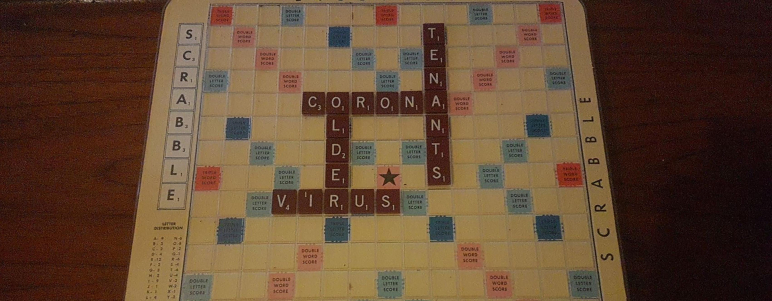Protecting Older Tenants during - and after - the COVID-19 Pandemic
Older people are particularly vulnerable to the COVID-19 virus. They need safe and affordable housing so they can practice physical distancing, quarantine and self-isolation as required. This briefing presents some of the missing pieces in the puzzle of protecting older Victorians.
Key Messages
- Older people are especially vulnerable to COVID-19 and need safe and affordable housing to keep themselves healthy
- Older people make up the fastest growing segment of the social housing and private rental market and have specific needs that may be eclipsed by concerns mainly affecting other groups (for example, rent arrears from job losses)
- There are unique and emerging issues for older people living in retirement housing, for example, caravan parks, residential parks and retirement villages
- There are large numbers of “hidden homeless”, including many older women, who no longer have housing options as a result of this pandemic
- Older people experiencing elder abuse may find themselves trapped with their abusers by the pandemic if they cannot access safe and secure alternative housing.
- Older renters must be protected from eviction and temporary housing options must be made available to older people without suitable safe housing
Safe and affordable housing protects older people from COVID-19
Older people are particularly vulnerable to the COVID19 virus. They need safe and affordable housing so they can practice physical distancing, quarantine and self-isolation as required.
What are the issues for older people and housing?
There are over 28000 households of people aged65 and older renting in Victoria who are in severe housing stress. This means that falling into rent arrears is more common for older renters even without the impact of the pandemic. People on the Aged and Disability Pensions, including a large proportion of Victorians aged 50-64, are not eligible for the Coronavirus Supplement. In 2016, there was over 3100 people aged 55-64 who were homeless or in marginal housing.
People living in caravan parks, residential parks and retirement villages are concerned about communal facilities and services that have either been suspended, or are continuing, potentially placing residents at risk. It is unclear who should and shouldn’t be excluded from their parks and villages.
Older women are the fastest growing cohort of homeless people, with a 70% increase in the number of older women aged between 65-74 who reported being homelessin the last census. Many older women are couch surfing in overcrowded housing with family or friends, making it impossible to implement social distancing measures. Older women who use house sitting as their solution to homelessness are reporting that this option has dried up due to the Coronavirus pandemic, leaving them with no options for safe housing. The numbers of these “hidden homeless” are difficult to know due to being seriously under reported.
Recent Government announcements for renters and the homeless
HAAG welcomes the government’s announcement about new protections for renters in the context of the pandemic, but as we await more details about these laws and policies we consider it essential that these laws protect all older renters. HAAG also welcomes the recognition by Housing Minister Richard Wynne of the additional COVID-19 risk for people without a safe place to call home. The announcement of pop-up facilities for the homeless to self-isolate and recover is a positive step, and should be extended to older people who are couch surfing, housing sitting, and living in over-crowded conditions, as well as “rough sleepers” living on the street or in their cars.
The solutions
1. Extend the eviction moratorium for all older renters
Older renters must be protected from eviction, no matter what their circumstances. We are as yet unclear on the grounds for termination that will be permitted during the announced 6 month moratorium, but we believe these should be framed as narrowly as possible, and limited to circumstances where eviction is fair and reasonable in all the circumstances -weighing risks to the broader public as well as the individual. We also consider it urgent that the moratorium include retirement villages, where section 16 of the Retirement Village Act currently allows termination in a wide range of circumstances.
2. Provide help for older renters to negotiate
The proposed arrangements anticipate that tenants and landlords will negotiate in good faith over fair and reasonable rent reductions. We are concerned that many tenants – especially older people, already recognised as an at-risk group – will lack the capacity to clearly assert their needs and rights. In many or most cases, landlords in such negotiations will be professional represented by real estate agents.
Just as Consumer Affairs Victoria is deploying additional mediators to assist landlords and tenants to reach agreement, it is urgent that Tenancy and Retirement advocacy services receive additional funding to provide advice, representation and duty advocacy so vulnerable tenants can secure good outcomes.
3. Affordable housing for people experiencing elder abuse
The Rapid Housing Assistance Fund for victims of Family Violence excludes older people on government benefits, who are unable to sustain private rental due to the high cost. Elder abuse is most often perpetrated by adult children, many of whom will be experiencing their own housing crisis due to COVID-19 and returning to the family home, increasing the likelihood of elder abuse. We need housing options for older people that could include prioritisation for social housing, or subsidised rent in private rental.
4. Defend and extend new protections
Older people’s housing issues are a crucial public health issue now – but this was also true before the coronavirus and will remain that way when the state ends its lockdown and eases its restrictions. The current housing measures should form the basis for a new understanding of the importance of and right to safe and affordable housing, and permanent protections that will allow older renters to age in place.



 "There is nothing like staying at home for real comfort."
"There is nothing like staying at home for real comfort."